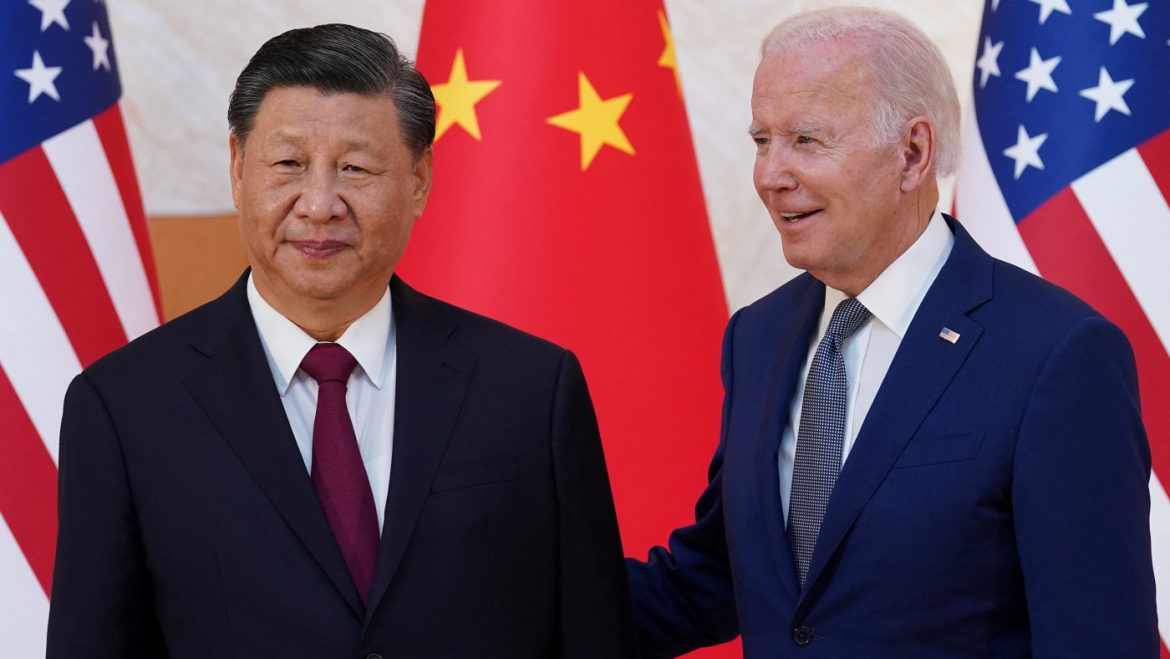As global conflicts intensify in the Middle East and Europe, President Joe Biden is eyeing a diplomatic reset in the closely-watched summit with Chinese President Xi Jinping. The focus of this critical meeting is to place the U.S.-China relationship on more stable ground after months of escalating tensions between the two superpowers.
Amidst the backdrop of a potential re-election campaign and the need to address pressing international issues, Biden aims to prevent another crisis from unfolding under his watch. The Republican-backed plan is to fund some departments until mid-January and the rest through early February at current spending levels.
In anticipation of the summit, U.S. officials have been cautious about managing expectations. Unlike traditional joint leaders’ statements following summits, there is no anticipation of a long list of outcomes. Instead, the primary objective is to restore channels of communication, especially through military channels, to avoid the potential miscommunication or miscalculation that could escalate into open conflict.
Biden emphasized the importance of returning to a “normal course” with China, highlighting the need for open lines of communication to handle crises effectively. Over the past year, groundwork for this summit has been laid, involving multiple diplomatic meetings between U.S. officials, including National Security Adviser Jake Sullivan, Secretary of State Antony Blinken, Treasury Secretary Janet Yellen, Commerce Secretary Gina Raimondo, and U.S. climate envoy John Kerry, with their Chinese counterparts.
Sources familiar with these efforts suggest that both nations are recognizing the necessity of collaboration to strengthen communication channels and avoid potential misunderstandings. A senior administration official stressed the importance of high-level diplomacy during times of intense competition, aiming to manage tensions and prevent conflicts.
The summit’s high stakes are reflected in the secrecy surrounding its location for security reasons, as well as meticulous discussions with Chinese counterparts about the meeting’s choreography. Despite a warm personal relationship cultivated during their vice-presidential years, Biden and Xi have overseen a deterioration in U.S.-China relations to the lowest level in decades.
Key topics expected to be addressed during the summit include military tensions around Taiwan, disinformation campaigns, human rights violations, potential cooperation on combating narcotics trafficking, China’s nuclear buildup, economic issues, and efforts toward curbing climate change.
However, expectations for major agreements, especially concerning Taiwan, remain tempered, given China’s claims to the self-governing island. Biden is likely to reiterate existing policy, acknowledging China’s claim of sovereignty over Taiwan.
As the summit unfolds, Biden faces political scrutiny, with Republicans questioning his decision to meet with Xi. The administration is keenly aware of the political backdrop and is working on practical agreements, such as cracking down on the export of source chemicals used to make fentanyl, to demonstrate tangible progress that aligns with American interests.
The Biden-Xi summit, therefore, becomes a crucial moment not just for international relations but also for the domestic political landscape, where the intricacies of diplomacy meet the urgency of national interests.



